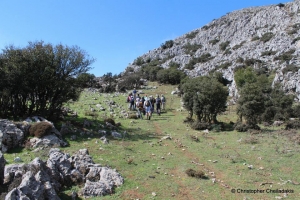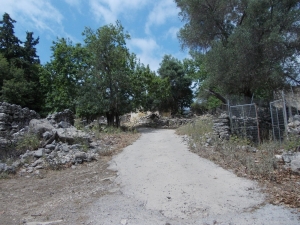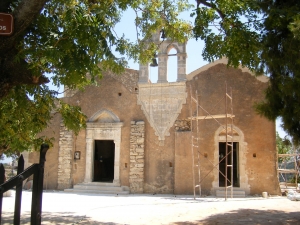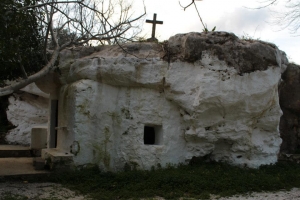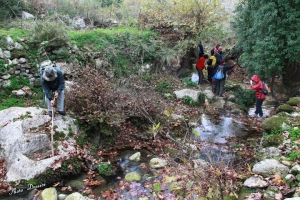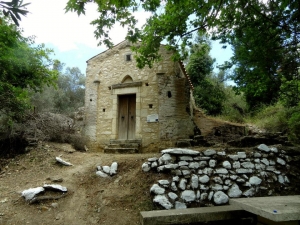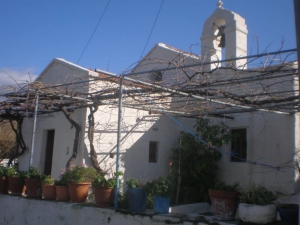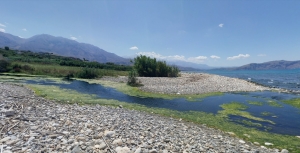This part of the E4 path has as its main feature the ascent of Mount Kryoneritis, which has panoramic views of the northern and southern coast of Crete. The course continues north and ends at Alones village.
On the European hiking trail E4 connecting Alones to Agios Konstantinos, atop a hill near Moundros village, we meet the deserted settlement of Nissi. Its remaining collapsed houses depict that this place has an important past. Among the dilapidated houses, there survives the church of Saint George, while a few meters away there is the church of Panagia Nissiani.
The church of Saint George at Kournas is one of the most important surviving Byzantine Monuments of Crete. It is built in a prominent position with panoramic views of the sea and probably operated as a monastery, and there are some traces of monk cells.
The chapel of Agia Paraskevi is accessed via the road leading to Episkopi, Rethymno, from Dramia village, Apokoronas. It is a very small cavernous rock built at the west bank of Mouselas river, that starts from Argiroupoli springs. It is a weird chapel, with irregular sides, with a unique shape in Crete.
This route offers some nice views of the fertile hinterland of Rethymnon, mainly using dirt and paved roads. The route starts from Agios Konstantinos, crosses Kalonihtis and Ano Valsamonero, before reaching Monopari, then Kastelos, and finishes at Armeni Minoan necropolis.
The church of Saint Kyriaki (Agia Kiriaki) is located on the banks of the river Mouselas, fed by the rich springs of Argyroupolis. It is the result of the conversion of a late Roman bath to a church in the 9th century.
In the Barotsiana district of village Argyroupolis there is the church of Our Lady (Panagia) Barotsiani, a single-storey 13th-century church, to which a chapel of Saint Anthony was added later. The name comes from the Venetian family Barozzi, who owned the area of Argiroupolis.
The river Mouselas flows through the valleys that form east of the White Mountains and flow into the western boundary of the large beach of Episkopi, in the large bay of Almyros that has the most rivers in Crete. It is the natural border of the prefectures of Chania and Rethymno.













